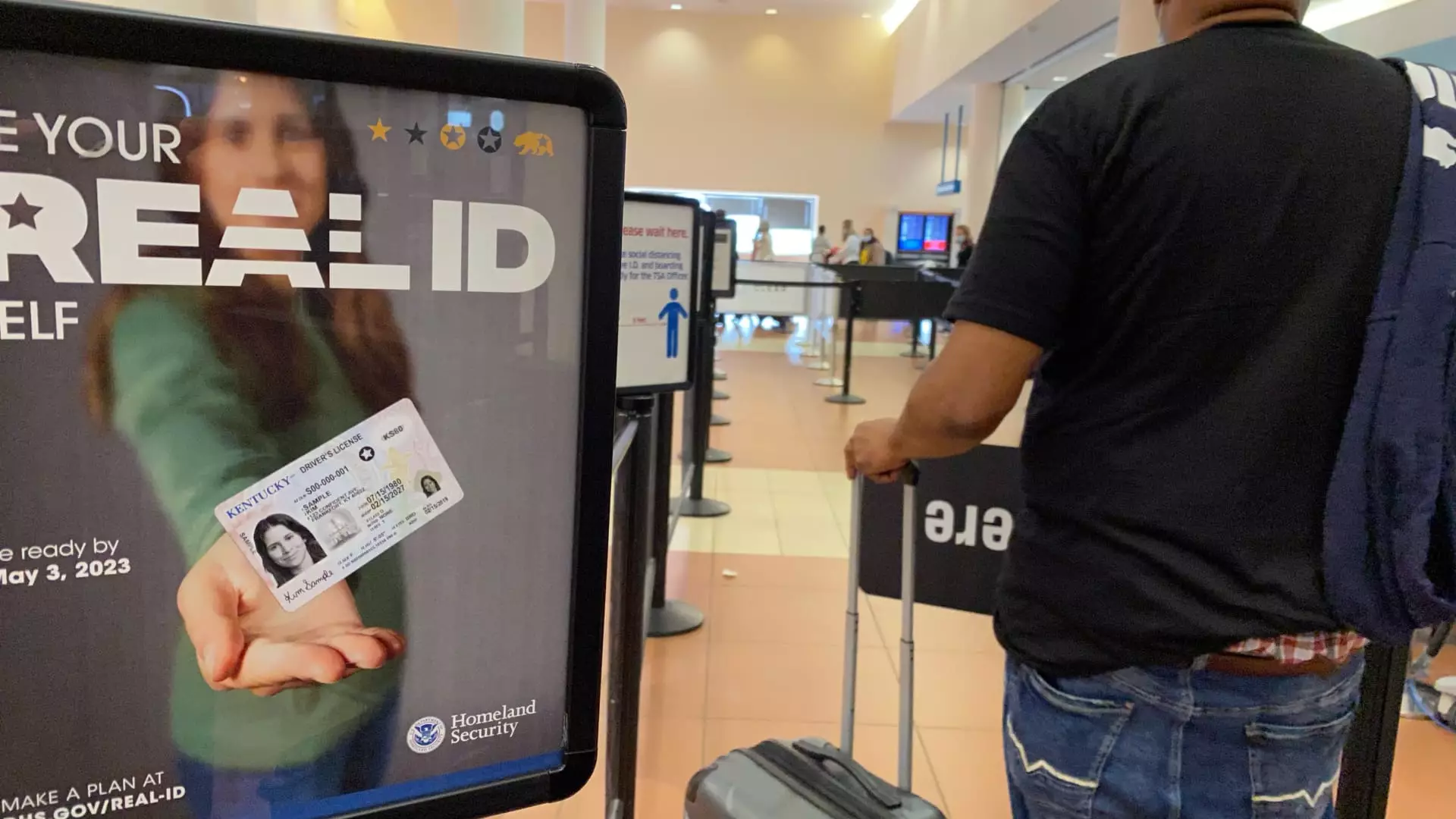The Real ID Act has emerged as a significant milestone in the broader narrative of national security and personal freedom. Instituted post-9/11, this federal mandate aims to bolster the integrity of identification systems across the United States. On May 7, federal officials will finally enforce compliance at airport security checkpoints, requiring travelers to present Real ID-compliant identification—a development that raises a plethora of questions about personal privacy, government overreach, and the reality of our national security efforts.
While proponents argue that these measures bring a necessary level of security, particularly in the face of emerging threats, the inevitable truth is that such stringent requirements can corner citizens into bureaucratic compliance under the duress of fear. The heavy-handed timing of this enforcement, following years of postponements, signals a possible lack of foresight or adequate planning on the part of state and federal officials. With only a small window for citizens to comply, we risk creating a logjam of citizens scrambling at often-overwhelmed DMV offices, further burdening an already strained public service system.
Compliance vs. Personal Freedom
The chilling reality of requiring citizens to comply with government standards for identification can be seen as a slippery slope towards greater governmental control. A staggering 81% of travelers are reportedly prepared with Real ID-compliant identification, yet that leaves a sizable minority who may find themselves inconvenienced or even barred from boarding flights altogether. In a nation that prides itself on personal liberties, such stringent regulations could easily breed resentment and resistance.
Moreover, the underlying message is clear: if you are not part of the compliant majority, you are viewed as a potential liability. While previous administrations justified the need for these measures as a direct response to terrorist acts, one cannot help but scrutinize whether we really need to curtail personal freedoms in the name of security. Are we inciting unspoken prejudices against those lacking the requisite documentation? The answer seems to hover in the spheres of moral grayness where personal freedoms come face to face with collective security.
The Role of the TSA in Vigilante Security
The Transportation Security Administration (TSA) has taken on the role of gatekeepers, reminding travelers to secure their Real IDs with a sense of urgency that borders on panic. John Essig, the TSA federal security director, underscored the necessity for immediate appointments. However, are we truly prepared to accept the TSA’s assertion that we must show up three hours early for flights if we lack a Real ID? This encapsulates the irony of a so-called security initiative that may inadvertently lead to public chaos and discontent at airports.
Additional layers of screening for those without a Real ID are an affront to the very ideals we espouse as a society that values freedom and fairness. It fosters an atmosphere where travelers can be subject to arbitrary delays, potentially resulting in missed flights and increased anxiety. This isn’t merely an inconvenience but an infringement on the rights of citizens. Such treatment of the flying public reflects a growing trend of guilt by association where the average citizen is criminalized without cause.
The Mixed Messages from Airlines
Airlines have joined the chorus of urgency, with notes of caution peppered through customer emails and website banners urging travelers to secure their Real IDs. Frontier Airlines’ gray banner beckons travelers to comply, painting a picture of conformity. This complicity raises questions about the role of private entities in facilitating government mandates. Should airlines be reinforcing government regulations to an audience already battered by the pandemic’s travel constraints?
The mixed messages create an environment of confusion, where travelers may not fully grasp the implications of their identification status until they reach the airport. The push for compliance feels less like a public service announcement and more like a desperate attempt to avoid government backlash or penalties.
Choosing the Path of Compliance
Ultimately, while the Real ID requirements may be rooted in the intentions of protecting national security, they challenge our societal fabric and legal frameworks concerning individual rights. The burdens placed upon citizens underscore a fundamental question: as we navigate this new reality, how can we reconcile our need for security with our unwavering commitment to personal freedom?
The Real ID has become a symbol of our time, encapsulating the struggles of balancing security with liberty and underscoring a growing discontent that may well determine the future of traveling in America. As we anticipate May 7, one can only wonder what the long-term implications will entail.

